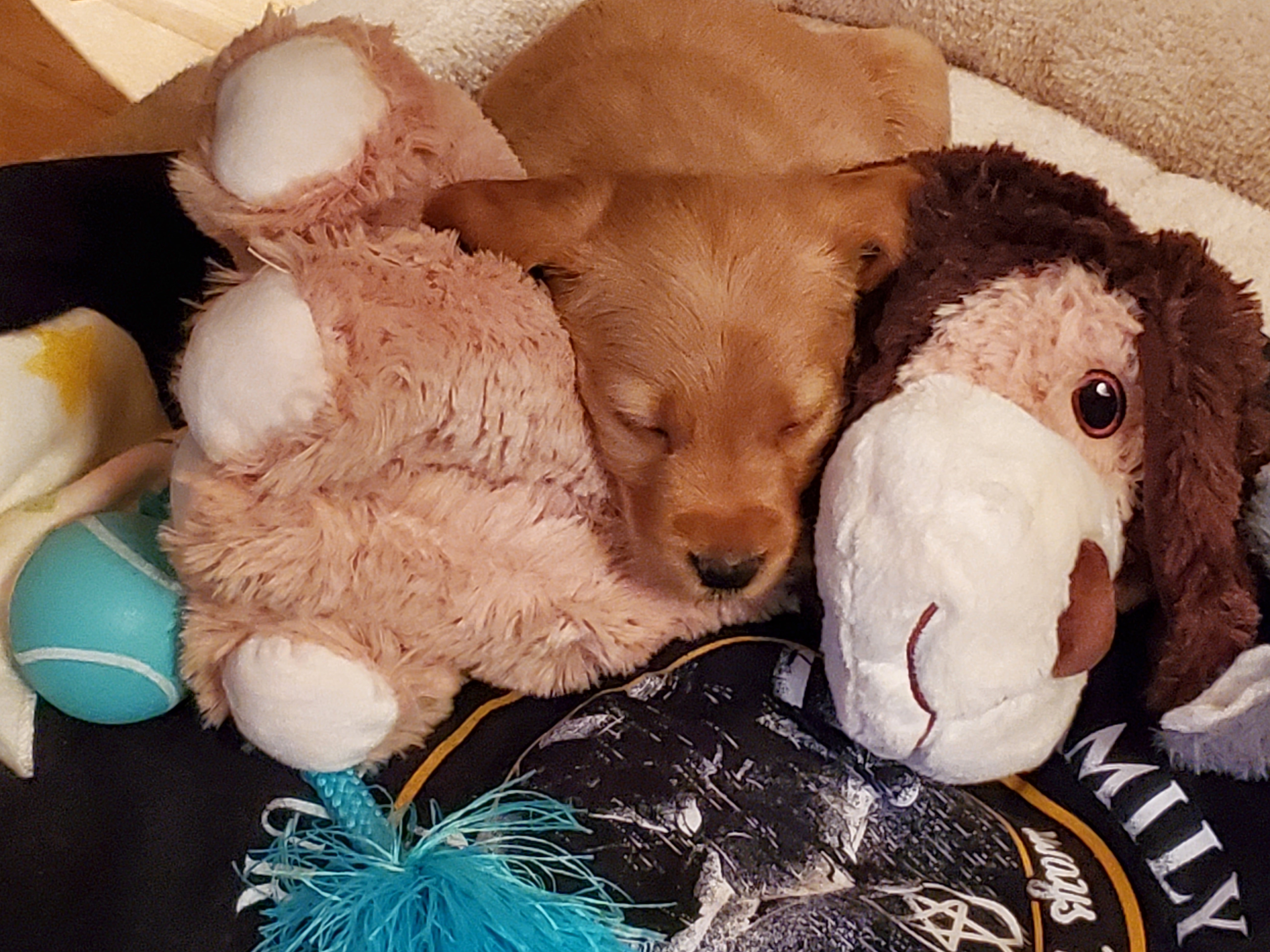Hail, Sunna!
Thu 23 December 2021 by jillianWe almost named her "bagels," because that is what we ventured out for, but it just didn't seem to fit her. She's a golden labradoodle. We picked her up at about 6 weeks old, and she's grown quite a lot.
Do you wanna take the dog out?
Inspired by Odie <3
Zuckerberg's Famous Pig
A certain social media has invited me to trust them with my RealID or leave. I'm undecided. Until I decide, and perhaps after, you can reach me on LinkedIn, Twitter, MeWe, or by email.
Update: I checked Facebook's list of acceptable documents and sent them some, but they neither accepted …
read moreRhymin' and Stealin'
Hat tip to the Beastie Boys...
Copyright 2020, 2021, 2022, 2023, 2024, J.A. Bolton. All Rights …
read moreJessie's Squirrel
Eine Kleine Coronamusik
Coronavirus: Hoax or PsyOps?
Now that the social media disinformation campaign has been successful enough that our adversaries are convinced to ignore Facebook, blogs, and other "crowdsourced" beacons of truth, we can finally share the stark reality about the "Coronavirus Pandemic."
The coronavirus is an elaborate, global PsyOps campaign. There's an alien armada in …
read moreCoffee
>> A pretty waitress refills your coffee cup. >> Shutting down to shut down command by Valkyrie from localhost. % Connection to ch7 closed by foreign host. ---- No world ----read more
Chili Queens
For an authentic Texas bowl of red, one must start with the fundamentals: meat and chili paste. This means that exotic foreign ingredients, such as dried rocoto mixed with a blend of ground kangaroo and zebra, can be an excellent foundation. Resist the temptation to add Texas native ingredients like …
read more

